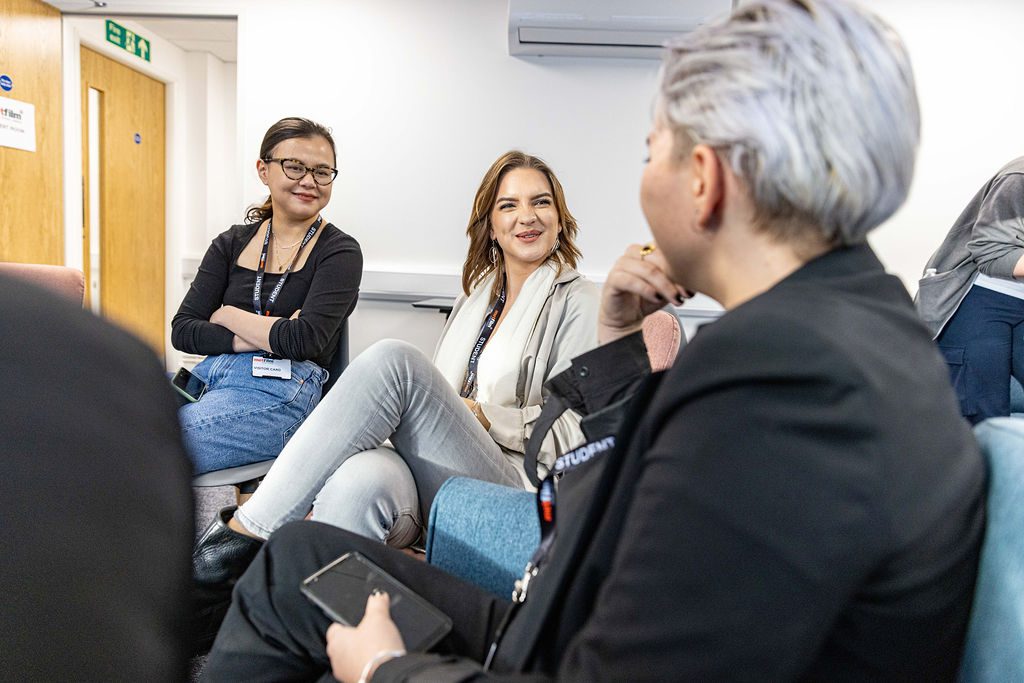As most schools and colleges break-up this week it’s important for students to use this time wisely if they still haven’t applied to university – the deadline is 26th January for starting in 2022.

Studying a degree is a significant commitment and it’s a big decision, over 20,000 don’t start their 2nd year so it’s really important to make sure you get as much information as possible over this Christmas break, to help you make the decision that’s right for you.
Applying to university can be daunting, and if you’ve put it off and put it off – you’re really going to have to look lively – so what can you realistically do during this Christmas break?
We asked Dr Lisette Johnston, former BBC World News Editor and Head of School at ScreenSpace at MetFilm School to give us some top tips…

1. SUBJECT FIRST. Which degree will best suit you? For example, there is a difference between ‘Film & Screen Business’ and say, ‘Media Studies’, so you need to do your homework. League tables give some idea, but also look at uni websites. Most courses give a module overview to give a sense of what topics you’ll cover across the degree. Are there similarities or differences in the courses you like?
2. UNIVERSITY NEXT. Just because a university offers your degree subject and ranks well doesn’t mean it’s the best place for you. Reach out to current students via Unibuddy, social media and forums – ask them about their experience at the university, try TheStudentRoom.com, groups on Facebook etc… also check-out the university’s Insta account – get a feel for what people are responding to and how they are responding.

If you haven’t already, as soon as you can book on an Open Day – you’re probably going to have to apply whether you’ve visited the uni or not at this late stage, but before you accept an offer, try to get to the campus – remember you will spend three or four years there, and may have to move from home, so you want to make sure you will be happy.
· Checkout what the student union is like.
· Do they have clubs and societies you are interested in?
· How easy is it to get to class?
· Are you on a campus or in a city?
Knowing these things will make it easier to make a decision when the offers start coming in.
3. THINK ABOUT THE FUTURE: The decisions you make about where and what to study are only part of the story. Find out:
· If you get to do work experience
· Are there sandwich course options with year in industry?
· Also look at employability rates for the university as a whole and your field of study. At MetFilm School, 87% of our students are working within the creative industries within six months of graduating. This is very different to marketing puff saying ‘a high percentage of graduates are working’ – get the facts!

4. KNOW WHAT AND WHEN: Universities know how scary the UCAS application process can be, so every candidate who applies for our courses is assigned a dedicated Admissions Manager (other unis offer this too) who will help talk you through the process, from researching a course, to personal statements and student finance.
Even if you aren’t currently studying a ‘relevant’ subject, don’t discount applying to a course that really interests you. We, like other institutions consider all applications where students have demonstrated a passion for the industry/subject.
To help you learn more about the course that you’re interested in, make sure you call the university as soon as you can after the Christmas break, and have a list of questions at hand and… make sure you know about any open days, workshops and / or applicant visits BEFORE you accept an offer.
Dr Lisette Johnston is a former BBC World News editor and Head of School at ScreenSpace which is a collaboration between MetFilm School and the University of West London, with courses delivered at the MetFilm School London campus at Ealing Studios and Leeds campus at Prime Studios
Help keep news FREE for our readers
Supporting your local community newspaper/online news outlet is crucial now more than ever. If you believe in independent journalism, then consider making a valuable contribution by making a one-time or monthly donation. We operate in rural areas where providing unbiased news can be challenging. Read More About Supporting The West Wales Chronicle


























